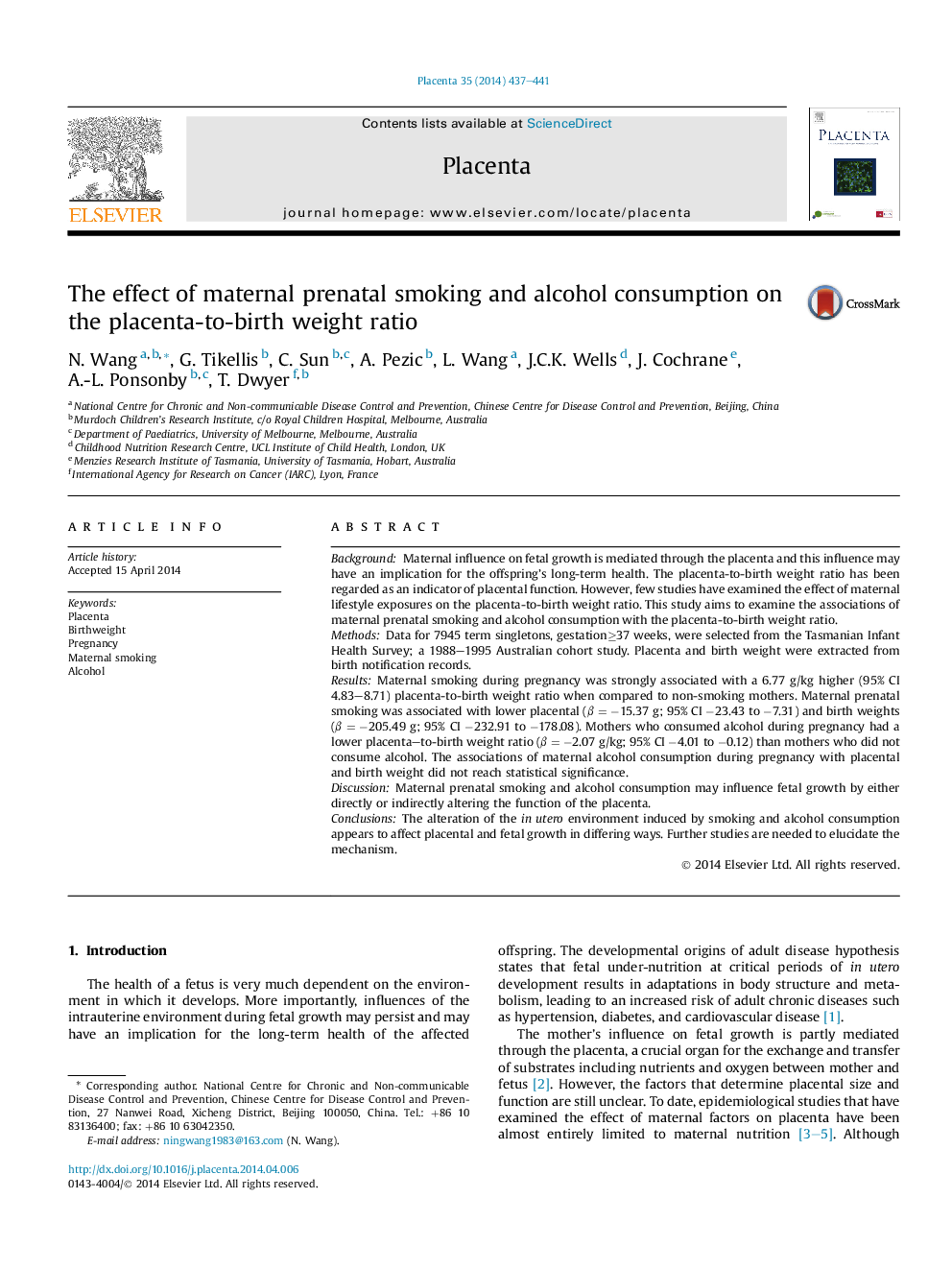| Article ID | Journal | Published Year | Pages | File Type |
|---|---|---|---|---|
| 2789036 | Placenta | 2014 | 5 Pages |
•We explore the effect of maternal lifestyle exposures on the placenta-to-birth weight ratio.•We use data for 7945 term singletons from the Tasmanian Infant Health Survey; a cohort study.•Maternal prenatal smoking strongly increases the placenta-to-birth weight ratio.•Maternal prenatal alcohol consumption decreases the placenta–to-birth weight ratio.•The in utero influences of smoke and alcohol affect placenta and fetal growth in differing ways.
BackgroundMaternal influence on fetal growth is mediated through the placenta and this influence may have an implication for the offspring's long-term health. The placenta-to-birth weight ratio has been regarded as an indicator of placental function. However, few studies have examined the effect of maternal lifestyle exposures on the placenta-to-birth weight ratio. This study aims to examine the associations of maternal prenatal smoking and alcohol consumption with the placenta-to-birth weight ratio.MethodsData for 7945 term singletons, gestation≥37 weeks, were selected from the Tasmanian Infant Health Survey; a 1988–1995 Australian cohort study. Placenta and birth weight were extracted from birth notification records.ResultsMaternal smoking during pregnancy was strongly associated with a 6.77 g/kg higher (95% CI 4.83–8.71) placenta-to-birth weight ratio when compared to non-smoking mothers. Maternal prenatal smoking was associated with lower placental (β = −15.37 g; 95% CI −23.43 to −7.31) and birth weights (β = −205.49 g; 95% CI −232.91 to −178.08). Mothers who consumed alcohol during pregnancy had a lower placenta–to-birth weight ratio (β = −2.07 g/kg; 95% CI −4.01 to −0.12) than mothers who did not consume alcohol. The associations of maternal alcohol consumption during pregnancy with placental and birth weight did not reach statistical significance.DiscussionMaternal prenatal smoking and alcohol consumption may influence fetal growth by either directly or indirectly altering the function of the placenta.ConclusionsThe alteration of the in utero environment induced by smoking and alcohol consumption appears to affect placental and fetal growth in differing ways. Further studies are needed to elucidate the mechanism.
